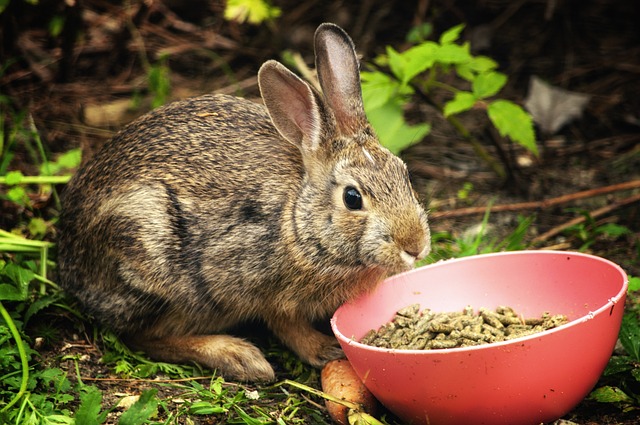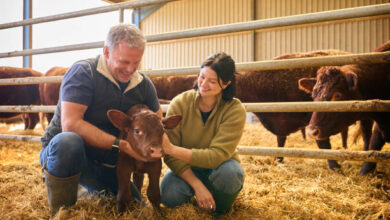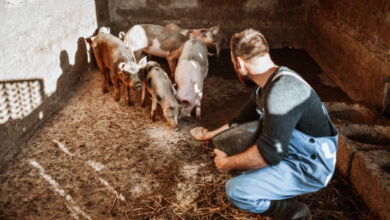
Can Rabbits Eat Tomatoes? Benefit and Risks
Do you have a curious rabbit eyeing the tomatoes in your garden? You might wonder, “Can rabbits eat tomatoes?” As a responsible pet owner, it’s essential to know what foods are safe for your furry friend. In this guide, we’ll explore whether tomatoes are safe for rabbits, the potential benefits and risks, and how to introduce this fruit to your rabbit’s diet safely.
Benefits of Feeding Tomatoes to Rabbits
- Nutritional Value
Tomatoes are rich in vitamins and minerals, which can be beneficial for rabbits in moderation. They contain vitamins A, C, and K, which support overall health and immune function. Additionally, tomatoes have antioxidants like lycopene, which can help protect against certain diseases.
- Hydration
Tomatoes have a high water content, which can help keep your rabbit hydrated, especially during hot weather. Proper hydration is crucial for maintaining a rabbit’s digestive health and overall well-being.
- Variety in Diet
Introducing tomatoes to your rabbit’s diet can provide variety and prevent boredom. Rabbits, like humans, enjoy a range of tastes and textures, and adding tomatoes can make their meals more interesting.
Risks of Feeding Tomatoes to Rabbits
- Tomato Leaves and Stems
While the tomato fruit itself is safe in moderation, the leaves stems, and green parts of the tomato plant contain solanine, a toxic compound. Ingesting these parts can lead to serious health issues such as gastrointestinal upset, lethargy, and even more severe conditions.
- Sugar Content
Tomatoes have a higher sugar content compared to other vegetables. Excessive sugar intake can lead to obesity, dental problems, and digestive issues in rabbits. It’s essential to limit the amount of tomato you offer to prevent these health problems.
- Acidity
Tomatoes are acidic, and too much acidity can cause stomach upset in rabbits. To avoid this, tomatoes should only be given as an occasional treat rather than a regular part of their diet.
How to Safely Introduce Tomatoes to Your Rabbit’s Diet
Introducing any new food to your rabbit requires careful consideration and a gradual approach. Tomatoes can be a tasty and nutritious treat for your bunny, but they must be introduced correctly to avoid health issues. Here’s a detailed guide on how to safely add tomatoes to your rabbit’s diet.
- Start Slow
When offering tomatoes to your rabbit for the first time, it’s essential to start with a small amount. Rabbits have sensitive digestive systems, and sudden dietary changes can lead to gastrointestinal distress. Begin by giving your rabbit a tiny piece of tomato, no larger than the size of a thumbnail. Monitor your rabbit for the next 24 hours for any signs of digestive upset, such as diarrhea, bloating, or changes in behavior. If your rabbit shows no adverse reactions, you can gradually increase the portion size over time.
- Proper Preparation
Preparing tomatoes correctly is crucial to ensure they are safe for your rabbit to eat. Follow these steps:
Wash Thoroughly: Always wash tomatoes thoroughly to remove any pesticides, dirt, or chemicals that may be on the skin. Even if you buy organic tomatoes, washing is still necessary to ensure they are clean.
Remove Toxic Parts: The leaves, stems, and any green parts of the tomato plant contain solanine, a toxic compound that can harm rabbits. Ensure these parts are completely removed, and only the ripe red fruit is offered.
Cut into Small Pieces: Cut the tomato into small, bite-sized pieces. This makes it easier for your rabbit to eat and reduces the risk of choking. Smaller pieces also help in controlling portion size and prevent overfeeding.
- Moderation is Key
Tomatoes should be considered an occasional treat rather than a staple in your rabbit’s diet. Due to their higher sugar and acidity content, feeding too many tomatoes can lead to health issues such as obesity, dental problems, and stomach upset. A general guideline is to offer a small slice or one to two cherry tomatoes once or twice a week. This frequency ensures that your rabbit enjoys the benefits of tomatoes without the risks associated with overconsumption.
- Balancing the Diet
Rabbits have specific dietary needs that must be met to ensure their health and well-being. The foundation of a rabbit’s diet should be high-quality hay, which provides the essential fiber necessary for proper digestion. Fresh vegetables and leafy greens should also be included daily. Pellets can be offered in small quantities to provide additional nutrients.
When incorporating tomatoes into this diet, it’s important to maintain balance. Tomatoes should not replace the staple components of your rabbit’s diet. Instead, use tomatoes as a supplement or a treat that adds variety and interest. Always ensure your rabbit has constant access to fresh water and a variety of other safe vegetables and greens.
- Monitor for Signs of Overconsumption
Even with a careful introduction, it’s vital to watch for any signs that your rabbit might be consuming too much tomato. Symptoms of overconsumption include:
Digestive Issues: Look for signs of diarrhea, loose stools, or unusual changes in your rabbit’s droppings. These can indicate that your rabbit’s digestive system is not handling the tomatoes well.
Behavioral Changes: Pay attention to any changes in your rabbit’s behavior, such as lethargy, decreased appetite, or lack of interest in usual activities. These changes can signal discomfort or illness.
If you notice any of these symptoms, stop feeding tomatoes immediately and consult your veterinarian. It’s always better to err on the side of caution and ensure your rabbit’s diet supports their health.
- Consult Your Veterinarian
Before introducing any new food, including tomatoes, it’s a good idea to consult with your veterinarian. They can provide personalized advice based on your rabbit’s health, age, and dietary needs. Your vet can also help you determine the appropriate portion sizes and frequency for feeding tomatoes to your rabbit.
Signs of Tomato Overconsumption
- Digestive Issues
Watch for signs of digestive problems such as diarrhea, bloating, or gas. These symptoms may indicate that your rabbit has consumed too much tomato or other sugary foods.
- Behavioral Changes
Lethargy, decreased appetite, or changes in behavior can signal that your rabbit is not feeling well. If you notice any of these signs after feeding tomatoes, discontinue the fruit and consult your veterinarian.
Conclusion
Rabbits can eat tomatoes, but they must be offered in moderation and with caution. The fruit of the tomato can provide nutritional benefits and variety to your rabbit’s diet, but the leaves and stems are toxic. By introducing tomatoes slowly and monitoring your rabbit’s response, you can safely include this juicy treat in their diet. Always prioritize a balanced diet and consult with your veterinarian if you have any concerns.




